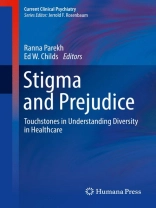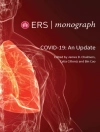In this innovative title, the authors describe unique patient populations affected by stigma and prejudice and the prevalence of these issues to all healthcare providers. Each chapter covers the forms of prejudice and stigma associated with minority statuses, including religious minorities, the homeless, as well as those stigmatized by medical serious medical conditions, such HIV/AIDS, obesity, and substance misuse disorders. The chapters focus on the importance of recognizing biological differences and similarities within such groups and describes the challenges and best practices for optimum healthcare outcomes. The text describes innovative ways to connect in a clinical setting with people of diverse backgrounds. The text also covers future directions and areas of research and innovative clinical work being done.
Written by experts in the field,
Stigma and Prejudice is an excellent resource for psychiatrist, psychologists, general physicians, social workers, and all other medical professionals working with stigmatized populations.
Tabela de Conteúdo
1. Stigma and Persons with Disabilities.- 2. Stigma and Persons with Obesity.- 3. Religious Minorities and Medicine: The Collision of Health Care and Faith.- 4. The Poor and Economically Vulnerable in Public and Safety-Net Healthcare Institutions: Outcomes and Attitudes.- 5. Stigma and Prejudice Against Individuals Experiencing Homelessness.- 6. VIP Patients: An Unexpectedly Vulnerable Population.- 7. Stigma and Persons with Substance Use Disorders.- 8. Borderline Personality Disorder: From Stigma to Compassionate Care.- 9. Diagnosed with Breast Cancer: Stigmatized or a Member of an Empowered Sisterhood.- 10. Stigma and Prejudice in Patients with HIV/AIDS.- 11. Commercially Sexually Exploited & Trafficked Minors: Our Hidden and Forgotten Children.- 12. Stigma and Veterans.- 13. I Pity the Poor Immigrant: Stigma and Immigration.- 14. Limited English Proficient (LEP) Patient: The Importance of Working with Trained Medical Interpreters to Promote Equitable Health Care.- 15. Improving Workforce Diversity in Minority and Majority Institutions.- 16. Leveraging Technology for Health Equity.- 17. Research with Diverse and Vulnerable Populations.- 18. Building Diversity Initiatives in Academic Medicine.- 19. Looking Outward and Inward: The Role of Introspection in Expanding and Consolidating Our Understanding of Diversity.- 20. Pharmacology: Cultural and Genetic Considerations.
Sobre o autor
Ranna Parekh, MD, MPH
Director, Division of Diversity and Health Equity
American Psychiatric Association












